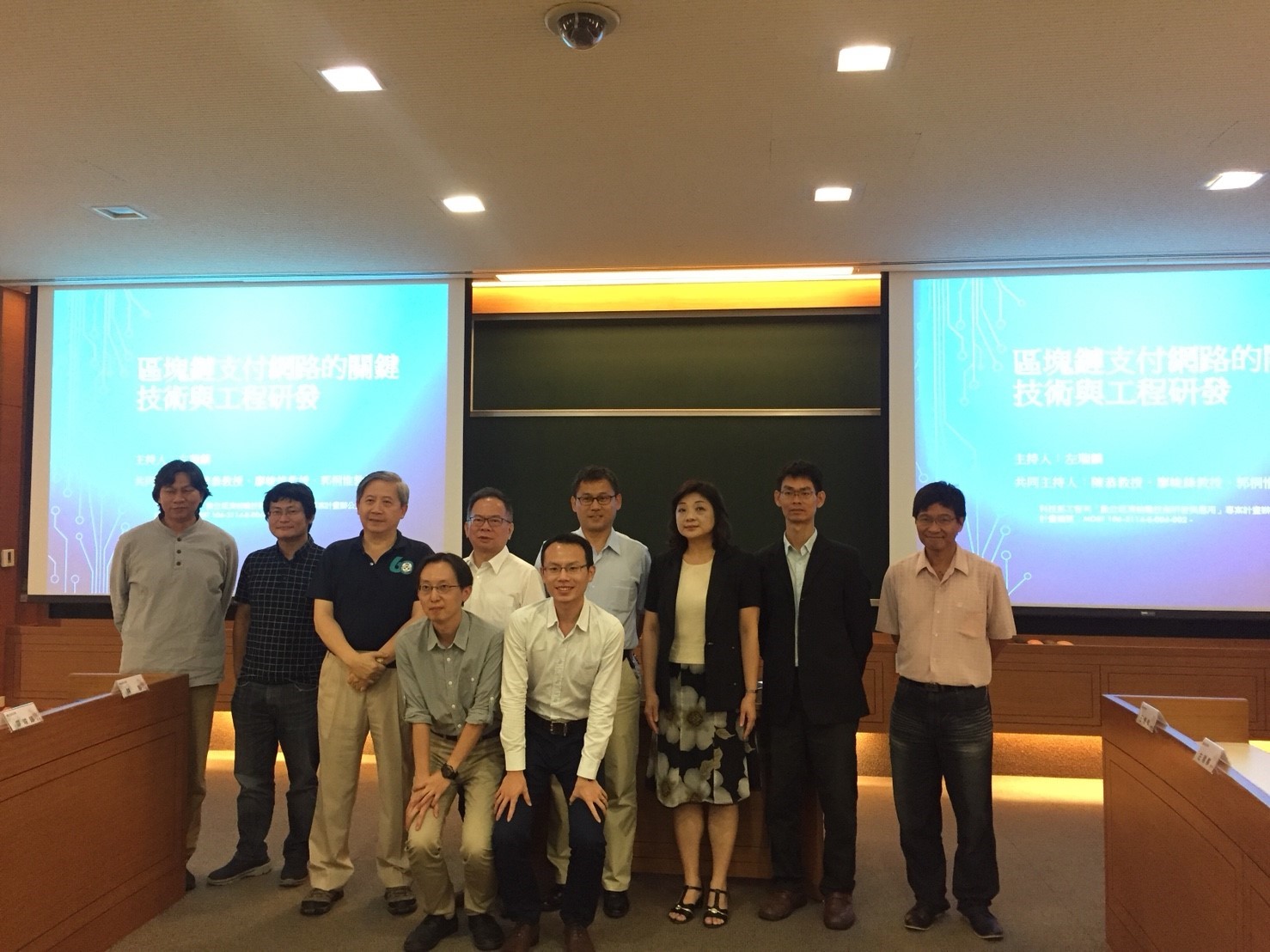Using AI to Monitor the Processing State and to Promote the Development of the Machine Tools Industry

Author(s)
Raylin TsoBiography
Raylin Tso is an Associate Professor in the Department of Computer Science, National Chengchi University, Taiwan. He received his PhD degree from Tsukuba University, Japan. His research interests include cryptography, privacy preserving technology, and blockchain. He is also the Editor-in-Chief of the Internal Journal of Information and Computer Security.
Academy/University/Organization
National Chengchi University-
TAGS
-
Share this article
You are free to share this article under the Attribution 4.0 International license
- ENGINEERING & TECHNOLOGIES
- Text & Image
- October 22,2019
The smart city is a hot topic which aims at improving the quality of people’s lives while giving consideration to the environment. It is considered as a promising solution to the problem of rapid growth of urban populations. Currently, many projects relating to the development of smart cities have been proposed, most of which are based on the blockchain technology. Blockchain is a platform of secured and distributed databases. However, there is room for improvement to many aspects of blockchain. Our team at National Chengchi University started research focusing on the development of key technologies for blockchain. The project is supported by the Digital Economy Advancement Project. We have attained the following achievements. First, we designed an efficient consensus protocol to improve the transaction throughput of the blockchain in a permissioned system. We also designed a simple two-step Byzantine consensus protocol that achieves safety and liveness without a recovery protocol. Second, from a software engineering’s perspective, we designed middleware for managing smart contracts so that the development of blockchain applications is easier than before. Finally, for the purpose of privacy protection in blockchain-based applications, we designed a Zero-Knowledge Range Proof (ZKRP) protocol which allows a user to convince other people that a secret value lies within an interval without revealing the secret. We also designed a new kind of certificate for blockchain-based applications.
Urbanization will be an inevitable trend in the future according to the “2018 Revision of World Urbanization Prospects” reported by the UN Department of Economic and Social Affairs (UN DESA). It is projected that 68% of the world’s population (i.e., about 6.3 billion) will reside in cities and urban areas by 2050. Nevertheless, the rapid growth of urban populations increases the need for essential infrastructure and services. Therefore, how to provide the necessary infrastructure and services in a more economical way has become a big challenge. The smart city is considered as a promising solution to the abovementioned problem. It has come into the limelight recently owing to the fact that it supports full decentralization without the existence of a trusted third party, and it provides better security than other systems.
The smart city is a new framework which utilizes various new technologies such as Artificial Intelligence (AI), Internet of Things (IoT), ubiquitous computing as well as blockchains to efficiently manage and operate basic infrastructure and life infrastructure services. It is a new type of city aimed at improving the quality of people’s lives on one hand, and giving consideration to the environment on the other.
For this reason, many projects relating to smart cities have been developed all over the world in recent years. Moreover, many of them have been developed by utilizing the advanced technology called “blockchain.” Examples include the blockchain-based smart city project for the Cambodian capital which aims to sustain a smart neighborhood at the heart of the Cambodian capital, the “Enigma” project created by the Massachusetts Institute of Technology (MIT) which is a blockchain-based platform allowing different parties to jointly store and run computations on data while maintaining data privacy, and the Blockchain Urban Plan released by the South Korea Government in which 14 management projects based on blockchain are proposed.
Blockchain is a platform of secured and distributed databases where the validity of data is verified by peers. The consensus of peers is achieved based on the pre-determined policies (e.g., proof-of-work, proof-of-stake). As a result, blockchain enables distributed peers to reach consensus in a trustless network without a centralized authority. Blockchain is currently a hot topic owing to the fact that it supports full decentralization without the existence of a trusted third party, and it provides better security than other systems. Taking advantage of blockchain, researchers have found that it can help governments create smart cities effortlessly in the following areas:
- Secure and quick payments and money transfer without any additional transaction fee to intermediaries.
- Better governance from conducting decentralized and secured e-voting systems to tracking ownership of assets and the like.
- Insurance management and tracking with the help of blockchain-based identity management systems.
- Supply chain management from food to agriculture industry and others.
- Healthcare ecosystems in which a blockchain can serve as a decentralized ledger to store personal details of the patient.
- Energy trading to facilitate better waste management by utilizing a blockchain integrated with IoT sensors and AI.
- Decentralized identity management systems to store and validate user identities.
Blockchain, the promising technology, has so many advantages to be used in realizing smart cities. However, the technology development is still ongoing and not yet perfect. There is room for improvement in many aspects.
Profs. Raylin Tso, Kung Chen, Chun-Feng Liao and Tung-Wei Kuo at National Chengchi University (Taiwan), Department of Computer Science and Department of Information Management, lead a research team focusing on the research and development of key technologies for blockchain. The research is supported by the Digital Economy Advancement Project. So far the achievements are as follows. First, to improve the transaction throughput of the blockchain in a permissioned system, we designed a more efficient consensus protocol. The experimental result shows that in a blockchain with four nodes, we can achieve a throughput of 1000 transactions per second (TPS). We also designed a simple two-step Byzantine consensus protocol that achieves safety and liveness without the help of a recovery protocol in the presence of faults. Second, from a software engineering perspective, we designed middleware for managing smart contracts so that the development of blockchain applications is easier than before. In particular, we investigated the architectural issues for realizing blockchain-driven IoT services and proposed four typical architectural styles for such services. We also designed a set of automatic integration testing tools for smart contracts. Finally, for the purpose of privacy protection in blockchain-based applications, we designed a Zero-Knowledge Range Proof (ZKRP) protocol which allows a user to convince other people that a secret value lies within an interval without revealing any information about the secret. It can be used to prove, for example, that you are older than 20 without revealing your actual age, or that the amount of your transaction is greater than a lower bound A and/or less than an upper bound B without revealing your actual payment amount. We have also designed a new kind of certificate for identity management that is suitable for blockchain-based applications.

STAY CONNECTED. SUBSCRIBE TO OUR NEWSLETTER.
Add your information below to receive daily updates.




